of Business
U·S·B·E

Prerequisites
C-Level (Advanced level)Courses in Business Administration 60 ECTS credits. Students are required to have a minimum of 40 points from the A-and B-level courses in Business Administration. This corresponds to 60 ECTS-credits in basic courses in Business Administration (Management, Accounting, Financial Investments, Cost Accounting and Marketing).
D-Level (Specialized level)
Courses in Business Administration 90 ECTS credits. Students are required to have a minimum of
40 points from the A-and B-level courses in Business Administration. This corresponds to 60
ECTS-credits in basic courses in Business Administration (Management, Accounting, Financial
Investments, Cost Accounting, Marketing) At the advanced level, C-level in Business
Administration, students are required to have a minimum of 20 points including the C-level
thesis or equivalent. This corresponds to 30 ECTS-credits.
Concerning:
Marketing I D and Marketing I+II D add prerequisites : Statistics or a similar
course of 10 points/15 ECTS-credits.
Financial Management and Analysis D, Finance and Control D . These added prerequisites are recommended : 10 points/15 ECTS-credits Statistics or similar and a C-level course in Accounting 10 points/15 ECTS-credits.
Multinational Finance D. Basic courses in Corporate Finance, Statistics and Economics are recommended
Master's Programmes
see prerequisites for each Master's Programme
Full-time study
In Sweden students study one course at a time (consecutive scheduling) rather than several different courses at the same time (parallel scheduling).Our courses in Business Administration 10 points/15 ECTS-credits are held during the first half of each semester. One of the courses, 5 points/7.5 ECTS-credits, takes place during the first quarter of the spring semester. The 20 points/30 ECTS-credits courses last the whole fall semester and the Master's Programmes 40 points/ 60 ECTS-credits fill up both fall and spring semester.
Thus, when You fill in the application form choose courses in accordance with our "Swedish-consecutive-scheduling-model"! See also Synopsis schedules
You will find the code for the application form for each course and Master's Programme from the previous page. Look for the capital letters and numbers within the ( )-marks.
If you want to have full-time studies and the result is to few courses, less than 20 points/30 ECTS-credits each semester, I advice you to find other courses from Umeå University to solve that problem. You will find more courses from this page.
About Higher Education in Sweden
Higher education in Sweden is divided into undergraduate studies and postgraduate studies. The university colleges offer undergraduate studies within a limited number of first-degree programmes. The universities have a wider range of undergraduate programmes, and offer postgraduate studies and research opportunities. Furthermore, postgraduate studies are available at an increasing number of university colleges.All higher education is provided in the form of courses. One may study to obtain a degree, or just attend selected courses. A credit system is used to indicate the scope of a course or programme. One year of successful full time studies (40 weeks) gives 40 points and one semester gives 20 points. In the European Credit Transfer System (ECTS) 1 credit is equal to 1.5 ECTS credits.
The goals for various courses of study are set out in the Degree Ordinance. There are two kinds of first degrees - general degrees and professional degrees. The general degrees are:
Högskoleexamen (Diploma), awarded after the completion of at least 80 points, is equivalent to two years of full-time study.
Kandidatexamen (Bachelorís degree), awarded after the completion of at least 120 points, is equivalent to three years of full-time study. In the major subject, in-depth studies of at least 60 points (three terms) are required, as is a thesis of at least 10 points.
Magisterexamen (Masterís degree) is awarded after the completion of at least 160 points, equivalent to four years of full-time study. In the major subject, in-depth studies of at least 80 points (four terms) are required, as is a thesis of at least 20 points or two theses of at least 10 points each.
Yrkesexamen (professional degree) is awarded upon completion of programmes of varying length leading to qualification for a specific profession. Examples of professional degrees are the degrees of Doctor of Medicine and Master of Science in Engineering or Agriculture, as well as Bachelor of Education for the Compulsory School.
In Sweden, research is carried out in approximately 450 different subject areas. Postgraduate training for Doktorsexamen (Ph.D.) comprises 160 points, i.e. four years of full-time studies during in which the student is engaged both in a research assignment and in theoretical studies in the form of seminars or courses. The research assignment is expected to result in a dissertation.
In certain subject areas a licentiatexamen (Licentiate Degree) may be obtained after two years of postgraduate training. These studies consist of courses and a final, major dissertation. Doctoral and licentiate degrees are awarded at universities and specialised institutions organised along faculty lines and at a few university colleges.
Source: Courses in English at Swedish Universities & University Colleges (http://www.si.se/)
Finally some words about Ph.D studies/postgraduate studies at Umeå School of Business.
< < back